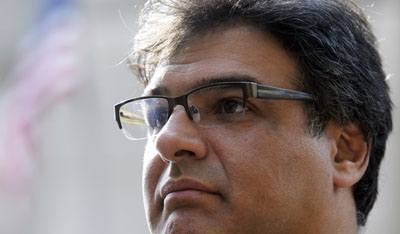Few cases better underscore the need for digital security among journalists. On Tuesday, ex-CIA officer John Kiriakou pleaded guilty to leaking the identity of another CIA operative to Matthew Cole, a journalist formerly with an ABC News investigative team. In a 2007 interview with ABC, Kiriakou became the first CIA official to confirm that waterboarding had been used on Al-Qaeda suspects.
An indictment filed in a federal court in Virginia alleged that Kiriakou subsequently shared classified information, including the names of covert CIA operatives involved in “waterboarding” interrogations, with three reporters. In April, Politico identified the reporters as Cole, his ABC colleague Richard Esposito, and Scott Shane of The New York Times. No journalists have been charged in the case.
CIA Director David H. Petraeus said the case marked the first successful prosecution under the Intelligence Identities Protection Act in 27 years. (A Bush administration-era investigation into the leak that identified CIA agent Valerie Plame Wilson led to the conviction of vice presidential aide I. Lewis “Scooter” Libby on charges of perjury and obstruction of justice.)
In building their case, federal authorities intercepted email messages between Kiriakou and the three reporters, according to a January 2012 criminal complaint filed in federal court. One of the journalists, whom Politico identified as Cole, then allegedly provided an investigator for attorneys defending a Guantánamo Bay suspect “with the name of the covert CIA employee.”
How exactly federal authorities obtained access to the email exchanges involving journalists remains unclear. But Cole is speaking on a panel on digital security this evening at 6:30 at the National Press Club in Washington. For his part, Cole has become a prominent advocate for digital safety skills, underscoring their necessity in protecting sources.
